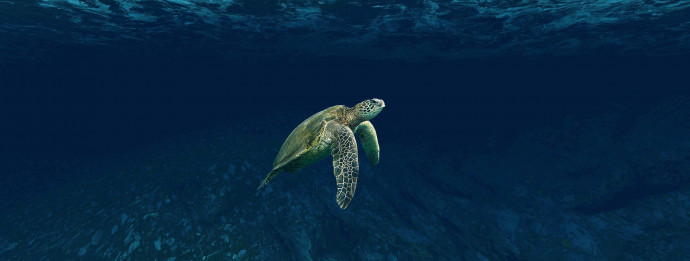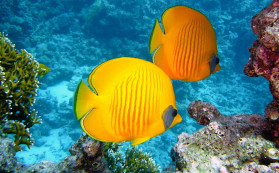Aquatic Animal Law Initiative
Launched in 2016, the Aquatic Animal Law Initiative is one of the first to focus on questions that broadly relate to the legal protection of aquatic animals.

What Is Aquatic Animal Law?
Aquatic animals are too often left out of the legal and regulatory frameworks that provide some protection for other non-human animals. By “aquatic animals”, we mean not only fish, but also the myriad of other animals that live in water for most of their life: amphibians, finfish, marine mammals, crustaceans, reptiles, molluscs, aquatic birds, aquatic insects and even animals such as starfish and corals. Too little is understood about aquatic animals, their welfare, environmental and health, and safety issues associated with aquatic animal use and production. Likewise, too little of the evolving scientific data relating to aquatic animals is available to the public and policy makers. When making decisions affecting their lives, it is important to consider the critical role of aquatic animals within ecosystems, as well as their individual capacities and biological needs.
Given the widespread use of aquatic animals for human goals, it is also important to consider questions raised by that usage - housing, feeding, medical care, transportation, slaughter, processing, breeding, testing, and exhibition. Until now, there has been no entity dedicated to the legal analysis of these issues. Thus, the Aquatic Animal Law Initiative (AALI) was created in order to consider the legal, as well as scientific and economic, contours of issues resulting from the use of aquatic animals.
Students conduct legal analysis and engage in law reform efforts regarding aquatic animal law, and will initially focus on:
- The exclusions of fish from regulatory protection within the Animal Welfare Act;
- The Frank R. Lautenberg Chemical Safety for the 21st Century Act rulemaking process, in order to address the increasing use of aquatic species in testing, to urge the implementation of appropriate standards for their protection, and to promote alternatives to animal testing;
- The impacts of aquaculture (industrial scale production of aquatic animals for food) on animals, as well as on the natural and human environments; and
- Development of a better social and scientific understanding of aquatic animals, and their critical role in the biosphere, in order to facilitate informed policy decision-making.

Swimming Against the Current: Advocating for Aquatic Animals
Tipping the Scales: How Law and Policy Fail Aquatic Animals
Making Waves: Changing the Status Quo for Aquatic Animals
Representative Matters
Through the Animal Law Clinic, we have represented clients on varied aquatic animal law issues, including local individuals and organizations in Oregon, national nonprofit organizations, as well as international clients in Ireland, Kenya and South Africa.
A few selected examples of our work in this area include:
-
A research memorandum relating to the regulation of aquaculture in the U.S. (at federal, state and tribal levels with comparisons to other countries’ regulations);
-
Work on the class action lawsuit challenging the use of mini tanks for betta fish;
-
Recommendations for the Green Party in Ireland regarding Marine Protected Areas and Endangered Species protection for certain animals;
-
Compiling and summarizing scientific research relating to fishes and other aquatic animals, focusing on their capacities and needs;
-
Research and drafting related to state aquaculture regulatory issues and liaising with relevant industry bodies;
-
A 50 state survey focusing on legal regulations related to the taking and killing of turtles;
-
A 50 state survey summarizing the protections for fishes in the context of anti-cruelty laws; and
-
A memorandum summarizing the issues and laws relating to Kenyan aquaculture.
Mission Statement
The Aquatic Animal Law Initiative works to protect and promote the interests of aquatic animals by:
- Advocating on their behalf through the legal system;
- Promoting their value to the public by providing education about their cognitive, emotional, and physiological capacities; and
- Harmonizing human, animal, and environmental interests.
Center for Animal Law Studies is located in Wood Hall on the Law Campus.
MSC: 51
email cals@lclark.edu
voice 503-768-6960
Center for Animal Law Studies
Lewis & Clark Law School
10101 S. Terwilliger Boulevard MSC 51
Portland OR 97219